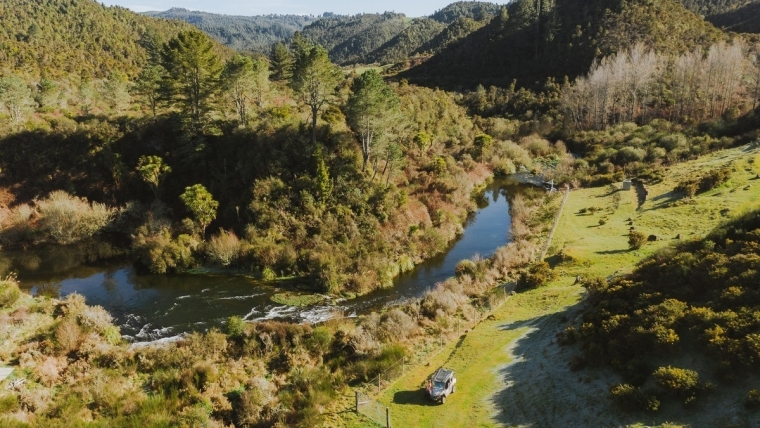
By Eric Frykberg
A new scheme allows Pamu's farmers to buy into sheep or beef farms while the state-owned farming company retains land ownership.
Pamu's farmers will be allowed to own animals and other assets on land held by Pamu and regard it as a tradeable share of the equity of the overall farm.
The company says this is more than just an opportunity for farmers.
“It’s a strategic shift in how we support the next generation of livestock farmers,” says the CEO Mark Leslie.
“It represents a commitment to unlocking equity pathways and backing high-performing operators with real skin in the game.”
Pamu is the trading name for SOE Landcorp, which works more than 100 farms covering 360,000 hectares. But as an SOE, it is obliged to hold on to most of its land.
It is also a well-established vehicle for the Treaty of Waitangi, with much of its land subject to Right of First Refusal or related claims from iwi.
As with other SOEs, Pamu is required to deliver strong economic returns to the taxpayer while maintaining social roles such as helping young farmers get onto the land and protecting animal welfare.
This new scheme is intended to give farmers the chance to build up equity and avert the loss of opportunities of the past.
The first farm to be made available is Mahiwi Farm, a 708 hectare rolling hill country farm near Wairoa, with a holding of 7000 stock units, two homes, a cottage and shearers' quarters.
“Mahiwi offers a strong balance of breeding and finishing country and scope for improved performance,” Leslie says.
“This model is about empowering skilled farming operators to take the reins, build equity, and shape the future of farming with accountability and ambition.”
The offer of equity in Mahiwi farm follows a similar programme for dairy farms. A minimum investment of $250,0000 is required.
The move comes after Pamu has pulled itself out of an economic quagmire and produced strong economic returns.
3 Comments
Sounds great!
The problem is that PAMU typically provides a very low return on capital. And the farmer investors will be minority investors with day to day control but no overarching strategic control, or even tactical control beyond the day to day situations. if I were a young farmer with $250,00 rattling in my pocket I would not be investing it in PAMU.
KeithW
Looks like it's a share of the trading stock and farm working assets. If the operator has enough capital and borrowings then they can own these assets outright and pay a return to pamu for the land use

We welcome your comments below. If you are not already registered, please register to comment
Remember we welcome robust, respectful and insightful debate. We don't welcome abusive or defamatory comments and will de-register those repeatedly making such comments. Our current comment policy is here.